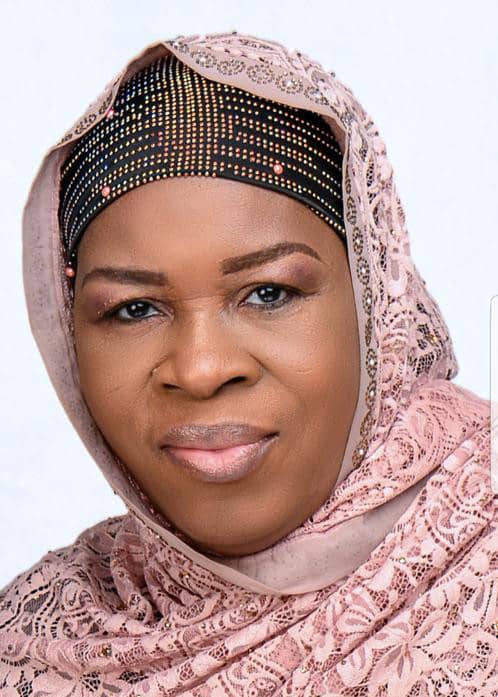At the behest of the legendary Mr. Dan Agbese, renowned journalist and author, the article below is a re-publication. The revered writer, master of style and elder statesman drew my attention to The Guardian story of May 19, 2023 headlined Aviation minister scores self 100% on failed carrier, MRO, airport concession, accompanied with a complimentary remark, “please republish your column, Hadi Sirika’s ego trip and other Buhari untouchables, see The Guardian lead of today. It was a courageous piece. The Guardian vindicated you”, hence this revised version.
The story in is a summary of underperformance of the Aviation Minister, Hadi Sirika under the outgoing government of President Muhammadu Buhari, and part of it was the intriguing story of the national carrier, Nigeria Air, which according to the report “took off” and “landed in court”. From day one, the Nigeria Air was wrapped in controversies; its logo was unveiled at the London Farnborough Airshow in July 2018. However, the December 2, date for take-off was aborted the same year.
The project was said to have gulped N14.65 billion out of which N6.25 billion was penciled down for working capital, consultancy and transaction advisers’ fees, though the minister said only N400 had been approved. In the 2023 budget, N1.3Billion was budgeted, which includes N700 million as working capital and N200 million as consultancy. Despite these investments, the Nigerian government was going to ownonly five percent while Ethiopian Airlines was to serve as “preferred” technical partner. Curious and suspicious.
Meanwhile the Nigeria Air dream effectively ended after a federal High Court in Lagos told all parties in a suit in 2022 to maintain the status quo after series of allegations over incorporation, ownership and security clearance as instituted by Airline Operators of Nigeria. It is not only Nigeria Air that did not see the light of the day; others include Aviation varsity, airport concession, MRO, airport cities etc, even as Aviation Safety Round Table Initiative scored the administration very low.
The failure factor cuts across all sectors. Unfortunately, with the exception of a few examples, the president’s men were never removed for failure or made to account for their (mis)deeds, thereby conferring legitimacy on their actions. In a few days, they will exit, and go scot-free. What a legacy!
Below is the article in full.
A close relation has just lost an opportunity to secure a visa to the United Arab Emirates (UAE) because he is a Nigerian. In December, the chap got an offer from a university in the UAE for both PhD and scholarship, and had gone through all the processes of registration, writing a TOEFL examination and police clearance back home. All was set, including access to his portal and he was already chatting with his professors before his visa request was denied.
As depressing as this is, there are many more out there who are in dire health situations, whose visa requests have been denied. Apart from the atrocious activities of a few Nigerian visitors to the UAE, giving us a bad name, such as cultism, drug peddling, and internet fraud, leading to tourist visa ban on persons less than 40 years old, there is also the issue of Emirates Airlines’ inability to repatriate the sum of $85 million trapped in Nigeria, after the Nigeria Civil Aviation Authority (NCCA) “implemented fines for international carriers using a currency other than the Naira to sell flight tickets amid foreign currency shortages”, contrary to “contractual obligation”. Patriotism? Well, it is open to interpretations. It seems more of an unbridled ego-trip by Buhari’s untouchable Aviation Minister, Hadi Sirika and his ilk, than anything else.
The mismanagement of the currency swap might have been the last straw that broke the camel’s back in the diplomatic row between the UAE and Nigeria but the Aviation Minister, Hadi Sirika, who is in charge of that sector has not discharged his duties creditably. The reputation crisis created from all these are rubbing off on innocent Nigerians in their career progression, including their educational pursuits. Yet, the minister has never been upbraided; he has always had his way, and his word is law. All his memos to the Federal Executive Counncil (FEC) have always been approved, without questions.
As early as last week, at the end of the Federal Executive Council meeting, he announced another N2.29 billion approval he got from FEC for the assembling of Hungarian Magnus light aircraft at the Nigeria Aviation College of Technology in Zaria. The “spin recovery aircraft” will be involved in the training of military and civilian pilots. He also stated that “this will happen, I think the first one or two aircraft will happen (the assemblage here in Nigeria) and to fly them within the remaining four months that we have as a government. So, it’s another item that is ticked on our plate, and to which we remain grateful to President Muhammadu Buhari and his government”. If this item is ‘ticked’ for the Minister in terms of contract award, how is it ticked for the Nigerian people at the mercy of a lame duck government that has only four months to leave office?
In July 2022, Minister Sirika announced that Nigeria Air would commence operations soon with three leased planes, stating that the national carrier will start with domestic flights, with a mixture of Airbus and Boeing aircraft. That ‘soon’ is yet to come less than four months to their exit. Nigeria Air has since run into troubled waters and litigations on it are ongoing, but the questions are: Will the minister be able to deliver Nigeria Air and get it off ground, rather than just being only online, despite the millions of dollars spent on designing its logo alone? Why does the Buhari government consistently indulge some people in his administration, even when they have not performed maximally? They say the President trusts easily, but why trust and extend the tenures of people who are not adding much value to your government? With so many qualified Nigerians, why extend the tenures of government officials who are statute barred?
The latest controversy over tenure extension pertains to the Inspector General of Police (IGP) Usman Alkali Baba who, going by the public service rule of either 35 years in service or 60 years of age, ought to retire on the 1st of March. He, however, has had his tenure elongated because the Minister of Police Affairs, Mohammed Dingyadi has stated that the IGP’s appointment is for four years, quoting the Police Act, which is contrary to tradition. In 2019, the tenure of the then IGP was also elongated due to the oncoming election. That action, as it will be now, also denied many people in the line of succession the opportunity to get to the peak of their careers.
Meanwhile, the IGP’s case is just the latest in the string of stay-put government officials we have witnessed, since Buhari became president almost eight years ago. Since 1999, this is about the first time that a president has kept the same people as ministers throughout his eight years in office, and has constantly renewed the tenures of heads of parastatals and MDAs whose terms have expired, even when most of them have failed to perform well.
The Ministers of Finance, Zainab Ahmed; Works and Housing, Babatunde Fahola; Aviation, Hadi Sirika; Education, Adamu Adamu; Interior, Rauf Aregbesola; FCT, Mohammed Bello, and a host of others who have been around since the inception of this government are some examples. If you can’t fire a person, why hire him in the first instance.
We should recall that it took the intervention of civil society protests and the media before the former security chiefs in the persons of Chief of Army staff, General Tukur Yusuf Buratai; Chief of Defence Staff, General Abayomi Olonisakin; Chief of Air Staff, Air Marshal Sadique Baba Abubakar and Chief of Naval Staff, Vice Admiral Ibok-Ete Ibas were relieved of their positions. And as if there is a dearth of qualified career and non-career diplomats and the president was liable for them, they were given other high-profile designations as ambassadors, even as they seemed weary and fatigued and had crossed the statutory age of 60 and 35 years in service, in a manner reminiscent of monarchical and dictatorial governments.
Again, this is unprecedent. No appointee had enjoyed such privilege in recent past. The National Security Adviser (NSA), Mohammed Babagana Monguno (rtd) and Customs boss, Hameed Ali have been in office since 2015. The same tenure extension scenario once played out at the Immigrations, Federal Road Safety Commission, NSCDC, Prisons, and Nigeria Import Promotion Council, before wise counsel prevailed or so it seemed then.
All these happened (and is still happening) not because of superlative performances of these super appointees, but in spite of it, coupled with ineptitude, cronyism and negligence by the authorities. Besides, this can only happen under a Buhari Presidency without backlash, pushback or consequences.
The Prime Minister of New Zealand, Jacinda Ardern has just announced her exit because of what she referred to as “burnout”, a period when you have run short of ideas and have become less creative and enthusiastic in your work, yet she is much younger than all these appointees in Nigeria. “I’m leaving because with such privileged role comes responsibility…And I know that I no longer have enough in the tank to do it justice”, Ardern said. Can we ever develop to this level?
Zainab Suleiman Okino is te chairperson of Blueprint Editorial Board. She is a Fellow of the Nigerian Guild of Editors (FNGE). She can be reached via: [email protected]







